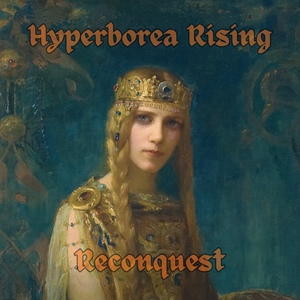


If you're reading this article, then I'm going to assume you already know who Varg Vikernes is, so I will not waste time talking about his musical career or infamous deeds. Recently, he caused more controversy by releasing an A.I.-generated neofolk album. He then performed a whole bunch of mental gymnastics justifying his decision. When people criticized him for it, he got angry and defensive.
Varg is one of the best and most influential musicians in all of black metal, but I think he's making a mistake by embracing A.I. like this. It is apparent for anyone with eyes to see that A.I. has been a net detriment. We have now reached the point where technology is actively making people dumber. Large language models such as ChatGPT are little more than glorified search engines, yet people see them as sacred oracles. They have become so reliant on these programs that they have become intellectually lazy. They no longer bother doing their own research. What makes this worse is that A.I. will often hallucinate and make things up. Most web sites nowadays don't even bother writing their own articles anymore. They let A.I. do all of that work for them. Anyone who has read those articles will notice certain traits that will immediately give it away, such as the overuse of em dashes, the "it's not x, it's y" formula, and prose that makes it feel like it was written by a millennial H.R. manager.
Things are just as bad when it comes to A.I. content creation. Years ago, A.I.-generated images and videos were unintentionally hilarious and horrifying, but now they have reached the point where they are good enough. This has been disastrous for sites like DeviantArt and Artstation, which have found themselves flooded by A.I. images. At least Pixiv gives you the option to filter out such content. The same cannot be said for other platforms. On many different occasions I tried to look up a video on a certain subject on YouTube only to find an A.I. voice and script. Not even music sites like Bandcamp and Spotify are safe from such content. I remember finding this one A.I brutal death metal band that had vocals that sounded like an angry tea kettle. It was pretty bad. A.I. slop is everywhere, and it's slowly killing the internet.
That brings us to the quality of A.I. content. A.I. images, for example, are nice to look at, but that's it. The lines and colors were put there not because a human artist put a great deal of thought and care into their work, but because an algorithm determined that those were statistically the most likely locations for such elements. There is no intentionality behind it. The work has no soul.
What do I mean when I talk about art having soul? This is almost impossible to explain. It's like trying to explain water to a fish. You should know what it's like for something to have a soul because you have one. Likewise, you should also know what it's like for something to feel soulless. Corporate art, for example, is soulless because it cares more about profits and quotas than genuine artistic expression. Underground art, even bad underground art, has soul because those artists were expressing themselves authentically. Those are the two secret ingredients for soulful art: intentionality and authenticity.
Now we return to Varg's A.I. album. It sounds nice, but that's the only positive thing I can say about it. He can talk about how he created it, but the A.I. did all the hard work. All he did was type text into a prompt. The music itself sounds like a mechanical amalgamation of every neofolk album ever made. It's as stale and bland as cardboard. It has no intentionality or authenticity. He can edit the music to make it sound more human, but he would have to change so much that he's better off recording the whole thing himself.
To be fair, A.I. is not entirely bad. I use it to quickly generate reference pics which I then give to artists who then draw what I actually want. The important thing to keep in mind is that we use this technology to enhance human creativity instead of replacing it entirely. This is the mindset we should have with every new invention. Technology should serve man, not the other way around.